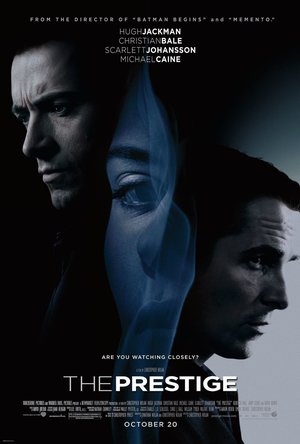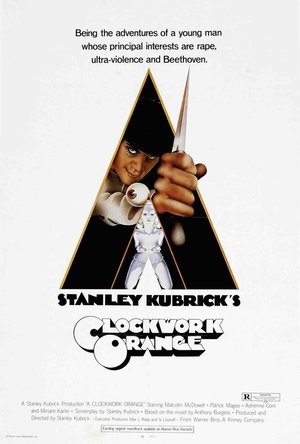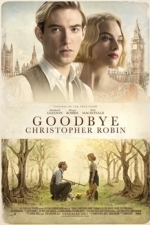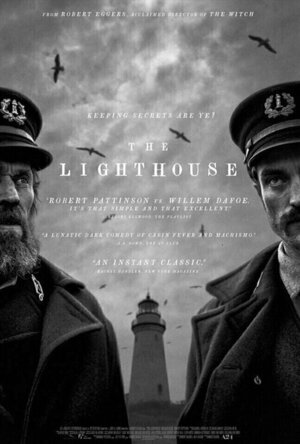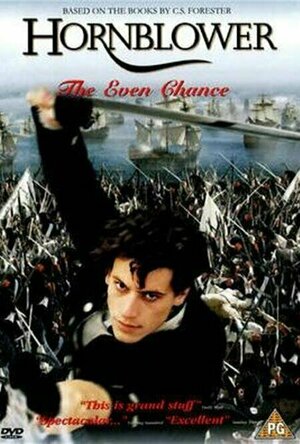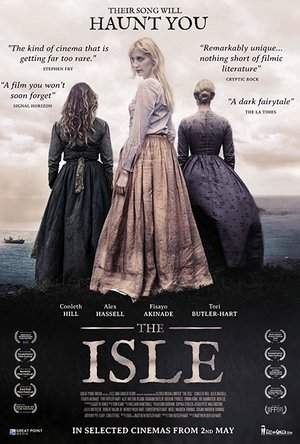Search
Sarah (7800 KP) rated The Prestige (2006) in Movies
Jan 9, 2021
Criminally underrated
Film #10 on the 100 Movies Bucket List: The Prestige
The Prestige is one of 3 Christopher Nolan films on this bucket list (the others being Memento and The Dark Knight), and probably the one that has least recognition out of the the three. In fact I’d say it’s criminally underrated. It focuses on two rival magicians in Victorian London, Robert Angier (Hugh Jackman) and Alfred Borden (Christian Bale), as a tragic accident gives rise to a bitter escalating feud. Supporting are Michael Caine as stage magic designer and engineer Cutter, Scarlett Johansson as magician’s assistant Olivia, Rebecca Hall as Borden’s wife Sarah and a brief appearance from Andy Serkis and the great David Bowie as Nikola Tesla and his assistant.
From the very start, The Prestige asks us the age old magician’s phrase “Are you watching closely?” and is very much a hint at events to come, warning us that we should be paying attention. And with this being a Christopher Nolan film, this shouldn’t be a surprise. The Prestige starts at the end, with an intriguing image of dozens of discarded top hats explaining magic tricks and the meaning behind the film’s title, and is followed by the death of one of the main characters and subsequent incarceration of another. It continues in typical Nolan style, jumping between the prison, Angier’s journey to visit Nikola Tesla and telling the story of both magicians and their feud from the very beginning. A tad confusing at times, but it wouldn’t be a Nolan film with a some time travelling story telling.
Magic isn’t probably something that appeals as much now as it did back when this film is set. Victorian London is a perfect setting at a time when magic was very much a fascination and a popular form of entertainment, and the costumes and set design for this period are very well done and in keeping with the dark and dreary setting. Yet strangely despite this, The Prestige never feels like a run of the mill period drama. The cast too are perfect for their roles and also help to make magic a lot more appealing. Christian Bale’s cockney Borden is exactly what you’d expect from him yet couldn’t imagine anyone else playing the role, especially with such an awkward verging on unlikeable character, and it’s refreshing to see Hugh Jackman play a part where he isn’t a completely nice or likeable person. And of course it wouldn’t be a Christopher Nolan film without Michael Caine, who brings some much needed humour and exposition. The only drag is unfortunately Scarlett Johansson, whose dodgy English accent pulls us away from anything she puts into her performance.
The Prestige is a slow burn murder mystery, that almost feels like a gothic horror at times with some sci-fi aspects thrown in. The plot has a vast amount of twists and turns and you really do have to be watching closely to understand it all and the ending itself and the final twist is probably the most polarising of them all. For me, the first time I watched this I never saw this twist coming. It truly shocked me, despite the many nods the film gives to the twist throughout. Watching this back now years later, I have to admit that the twist is actually a little predictable when you really think about it. But the feeling of astonishment I had watching this for the first time was second to none. What is most strange though, is that the most confusing thing in this entire film isn’t the twists and turns, it’s the fact that both Angier and Norden can dress up in ridiculously fake disguises to fool each other and ruin the tricks. This does spoil things a little.
I’ve always loved magic and grew up watching many magic shows on TV when I was younger. For me Nolan has brought back that love and appeal of magic, with a hugely entertaining and captivating story. It may not be perfect and the ending may lose some of it’s shine after the first watch, but it’s still another brilliant film from Christopher Nolan.
The Prestige is one of 3 Christopher Nolan films on this bucket list (the others being Memento and The Dark Knight), and probably the one that has least recognition out of the the three. In fact I’d say it’s criminally underrated. It focuses on two rival magicians in Victorian London, Robert Angier (Hugh Jackman) and Alfred Borden (Christian Bale), as a tragic accident gives rise to a bitter escalating feud. Supporting are Michael Caine as stage magic designer and engineer Cutter, Scarlett Johansson as magician’s assistant Olivia, Rebecca Hall as Borden’s wife Sarah and a brief appearance from Andy Serkis and the great David Bowie as Nikola Tesla and his assistant.
From the very start, The Prestige asks us the age old magician’s phrase “Are you watching closely?” and is very much a hint at events to come, warning us that we should be paying attention. And with this being a Christopher Nolan film, this shouldn’t be a surprise. The Prestige starts at the end, with an intriguing image of dozens of discarded top hats explaining magic tricks and the meaning behind the film’s title, and is followed by the death of one of the main characters and subsequent incarceration of another. It continues in typical Nolan style, jumping between the prison, Angier’s journey to visit Nikola Tesla and telling the story of both magicians and their feud from the very beginning. A tad confusing at times, but it wouldn’t be a Nolan film with a some time travelling story telling.
Magic isn’t probably something that appeals as much now as it did back when this film is set. Victorian London is a perfect setting at a time when magic was very much a fascination and a popular form of entertainment, and the costumes and set design for this period are very well done and in keeping with the dark and dreary setting. Yet strangely despite this, The Prestige never feels like a run of the mill period drama. The cast too are perfect for their roles and also help to make magic a lot more appealing. Christian Bale’s cockney Borden is exactly what you’d expect from him yet couldn’t imagine anyone else playing the role, especially with such an awkward verging on unlikeable character, and it’s refreshing to see Hugh Jackman play a part where he isn’t a completely nice or likeable person. And of course it wouldn’t be a Christopher Nolan film without Michael Caine, who brings some much needed humour and exposition. The only drag is unfortunately Scarlett Johansson, whose dodgy English accent pulls us away from anything she puts into her performance.
The Prestige is a slow burn murder mystery, that almost feels like a gothic horror at times with some sci-fi aspects thrown in. The plot has a vast amount of twists and turns and you really do have to be watching closely to understand it all and the ending itself and the final twist is probably the most polarising of them all. For me, the first time I watched this I never saw this twist coming. It truly shocked me, despite the many nods the film gives to the twist throughout. Watching this back now years later, I have to admit that the twist is actually a little predictable when you really think about it. But the feeling of astonishment I had watching this for the first time was second to none. What is most strange though, is that the most confusing thing in this entire film isn’t the twists and turns, it’s the fact that both Angier and Norden can dress up in ridiculously fake disguises to fool each other and ruin the tricks. This does spoil things a little.
I’ve always loved magic and grew up watching many magic shows on TV when I was younger. For me Nolan has brought back that love and appeal of magic, with a hugely entertaining and captivating story. It may not be perfect and the ending may lose some of it’s shine after the first watch, but it’s still another brilliant film from Christopher Nolan.
Chris Sawin (602 KP) rated A Clockwork Orange (1971) in Movies
Jun 15, 2019
Alex DeLarge (Malcolm McDowell) is your average eighteen year old boy...if by average, you mean he fully embraces the old ultraviolence and wanders the streets with his three droogs causing havoc and doing whatever he likes; skipping school, breaking and entering, rape, and assault is just another average day in Alex's life. However, when a planned rape turns into an "accidental" murder, things start to turn fowl for Alex. His droogs turn on him and he winds up being caught by the police. He is then taken to a correctional facility where he spends the next few years, puts on the front that he's fully embraced the bible and that he's now a changed man. But when word makes round of the experimental Ludovico treatment, Alex realizes his chance at freedom and jumps through the proper hoops to get out of the penitentiary he finds himself in and get into the experimental facility where he can be "cured."
Alex is promised that he'll be a free man within a fortnight. The treatment consists of a drug known as Serum 114 being injected into the patient before making them sit through short films such as a man being beaten to a pulp, a woman being the sexual victim of several men, and a Nazi concentration camp film set to the soundtrack of Beethoven's ninth symphony. Alex begins to feel sick during the films and the doctors insist that it's part of the cure. Alex's love for music and Beethoven in general become one of the adverse effects of the treatment as the ninth symphony has the same effect on Alex as the urge to beat or rape someone would. Alex soon comes to realize that you can never go home again and that being a free man isn't all it's cracked up to be, especially after a treatment such as this.
It took 37 years after its initial theatrical release and 24 years of being alive on this planet (the original viewing of this film was in 2008) to finally get around to seeing A Clockwork Orange. The film starts and it makes the viewer feel like they've missed something entirely that everyone else already knows about, but as the film unravels it snowballs into a unique vision of cinema. There are shades of Altered States in A Clockwork Orange, but A Clockwork Orange feels much more polarizing in its presentation in comparison. Stanley Kubrick tries to shine this spotlight of beauty onto the most heinous of actions as the film’s classical score becomes the soundtrack to ferocious and almost inhuman desires. This is Kubrick’s adaptation of the 1962 novel of the same name written by Anthony Burgess and it’s incredible how the film is able to remain captivating over a two hour period.
The film has a stunning restoration on the two-disc Blu-ray anniversary edition. Kubrick always had a brilliant eye when it came to perspective and camera placement; the majority of that could be contributed to Kubrick’s frequent collaborations with cinematographer John Alcott. The long hallway shots and close-ups on memorably haunting facial expressions are some of the most significant scenes in the film. A Clockwork Orange is loaded with vibrant colors that make every frame jump off the screen despite the film nearing half a century in age. This was the first film to take advantage of Dolby Digital surround sound, which contributes to the film sounding as good as it does.
Even with Stanley Kubrick as director, A Clockwork Orange wouldn’t be the same without Malcolm McDowell. McDowell fits the Alex DeLarge role as perfectly as Robert Downey Jr fits Tony Stark; these actors are these characters. The speeches McDowell gives in the film along with how traumatized he is after the treatment process are two of the biggest takeaways after viewing the film. This was one of McDowell’s first on-screen roles, which is surprising given how enthralling he is. You will never think of, “Singin’ in the Rain,” the same way again after viewing A Clockwork Orange.
A Clockwork Orange is a unique expedition into insanity no matter how you look at it. The dialogue is unusual and the characters are this fantastic blend of bizarre and diabolical, but the film is consistently engrossing and never seems to lag. Prior to 1986, the A Clockwork Orange novel was published in the US without its final chapter and that’s the version of the film Kubrick adapted. Anthony Burgess praised Kubrick’s version of the film despite this, which is more than what Stephen King did with Kubrick’s adaptation of The Shining. Every shot in A Clockwork Orange grabs your attention largely in part to how it’s presented or the colors that leap off the screen. The novel is written in a way that’s difficult to read and that often translates on-screen. Like most of Kubrick’s work, A Clockwork Orange is for a specific audience. It is perhaps what Malcolm McDowell is known best for and probably shouldn’t be recommended to just anyone since it would likely soar over a modern day moviegoer. This isn’t the type of film to have on in the background while you text or play games on your phone. Ultraviolence is something you have to embrace and give your undivided attention to.
This is viewed by some as one of the greatest sci-fi films ever by some, but it isn’t any less pretentious than the rest of Stanley Kubrick’s work. A Clockwork Orange is mesmerizing with a performance from Malcolm McDowell that leaves a long lasting impact, but its affinity to utilize difficult to decipher jargon, nonstop innuendo being slammed into your face, and overuse of animalistic violence shackles the film from being more appealing to a wider audience. From a personal standpoint, A Clockwork Orange is one of Kubrick's best but it's easy to understand why it wouldn't be for everyone.
Alex is promised that he'll be a free man within a fortnight. The treatment consists of a drug known as Serum 114 being injected into the patient before making them sit through short films such as a man being beaten to a pulp, a woman being the sexual victim of several men, and a Nazi concentration camp film set to the soundtrack of Beethoven's ninth symphony. Alex begins to feel sick during the films and the doctors insist that it's part of the cure. Alex's love for music and Beethoven in general become one of the adverse effects of the treatment as the ninth symphony has the same effect on Alex as the urge to beat or rape someone would. Alex soon comes to realize that you can never go home again and that being a free man isn't all it's cracked up to be, especially after a treatment such as this.
It took 37 years after its initial theatrical release and 24 years of being alive on this planet (the original viewing of this film was in 2008) to finally get around to seeing A Clockwork Orange. The film starts and it makes the viewer feel like they've missed something entirely that everyone else already knows about, but as the film unravels it snowballs into a unique vision of cinema. There are shades of Altered States in A Clockwork Orange, but A Clockwork Orange feels much more polarizing in its presentation in comparison. Stanley Kubrick tries to shine this spotlight of beauty onto the most heinous of actions as the film’s classical score becomes the soundtrack to ferocious and almost inhuman desires. This is Kubrick’s adaptation of the 1962 novel of the same name written by Anthony Burgess and it’s incredible how the film is able to remain captivating over a two hour period.
The film has a stunning restoration on the two-disc Blu-ray anniversary edition. Kubrick always had a brilliant eye when it came to perspective and camera placement; the majority of that could be contributed to Kubrick’s frequent collaborations with cinematographer John Alcott. The long hallway shots and close-ups on memorably haunting facial expressions are some of the most significant scenes in the film. A Clockwork Orange is loaded with vibrant colors that make every frame jump off the screen despite the film nearing half a century in age. This was the first film to take advantage of Dolby Digital surround sound, which contributes to the film sounding as good as it does.
Even with Stanley Kubrick as director, A Clockwork Orange wouldn’t be the same without Malcolm McDowell. McDowell fits the Alex DeLarge role as perfectly as Robert Downey Jr fits Tony Stark; these actors are these characters. The speeches McDowell gives in the film along with how traumatized he is after the treatment process are two of the biggest takeaways after viewing the film. This was one of McDowell’s first on-screen roles, which is surprising given how enthralling he is. You will never think of, “Singin’ in the Rain,” the same way again after viewing A Clockwork Orange.
A Clockwork Orange is a unique expedition into insanity no matter how you look at it. The dialogue is unusual and the characters are this fantastic blend of bizarre and diabolical, but the film is consistently engrossing and never seems to lag. Prior to 1986, the A Clockwork Orange novel was published in the US without its final chapter and that’s the version of the film Kubrick adapted. Anthony Burgess praised Kubrick’s version of the film despite this, which is more than what Stephen King did with Kubrick’s adaptation of The Shining. Every shot in A Clockwork Orange grabs your attention largely in part to how it’s presented or the colors that leap off the screen. The novel is written in a way that’s difficult to read and that often translates on-screen. Like most of Kubrick’s work, A Clockwork Orange is for a specific audience. It is perhaps what Malcolm McDowell is known best for and probably shouldn’t be recommended to just anyone since it would likely soar over a modern day moviegoer. This isn’t the type of film to have on in the background while you text or play games on your phone. Ultraviolence is something you have to embrace and give your undivided attention to.
This is viewed by some as one of the greatest sci-fi films ever by some, but it isn’t any less pretentious than the rest of Stanley Kubrick’s work. A Clockwork Orange is mesmerizing with a performance from Malcolm McDowell that leaves a long lasting impact, but its affinity to utilize difficult to decipher jargon, nonstop innuendo being slammed into your face, and overuse of animalistic violence shackles the film from being more appealing to a wider audience. From a personal standpoint, A Clockwork Orange is one of Kubrick's best but it's easy to understand why it wouldn't be for everyone.
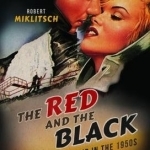
The Red and the Black: American Film Noir in the 1950s
Book
Critical wisdom has it that we said a long goodbye to film noir in the 1950s. Robert Miklitsch begs...
Sarah (7800 KP) rated Goodbye Christopher Robin (2017) in Movies
Oct 18, 2018
An interesting true story
Like many I know the stories of Winnie the Pooh, but until now I've never known the story behind the writing of the books and the real Christopher Robin.
This is a fascinating, if not slightly disturbing, tale of the creation of Winnie the Pooh and a large part of the life of A.A Milne. It's disturbing mainly for how badly Christopher Robin was treated and used by his parents, and I found this a little difficult to watch and at such a contrast with the happier scenes around the creation of the characters. Domnhall Gleeson is very good and convincing as the very prim and proper author, but I think my only issue is that this film takes the British stiff upper lip much too far. Whilst I don't doubt that this is how people were during this period of time, the stiff English accents really got on my nerves - especially Margot Robbie's, which was a little too proper and English.
This is a fascinating, if not slightly disturbing, tale of the creation of Winnie the Pooh and a large part of the life of A.A Milne. It's disturbing mainly for how badly Christopher Robin was treated and used by his parents, and I found this a little difficult to watch and at such a contrast with the happier scenes around the creation of the characters. Domnhall Gleeson is very good and convincing as the very prim and proper author, but I think my only issue is that this film takes the British stiff upper lip much too far. Whilst I don't doubt that this is how people were during this period of time, the stiff English accents really got on my nerves - especially Margot Robbie's, which was a little too proper and English.
Awix (3310 KP) rated The Lighthouse (2019) in Movies
Jan 31, 2020
Distinctively weird period horror movie. Two men are posted to operate a remote lighthouse off the New England coast. One of them is young and inexperienced; the other is old and annoying. Isolation, terrible weather, and perhaps something else all take their toll; there is madness in the air.
Another one of those really peculiar art-house takes on a genre movie that Robert Pattinson seems to enjoy doing: God knows what his take on Batman is going to end up like. I imagine that not many stranger films than this will get a major release this year, but it is still an impressive piece of film-making: well-played, very atmospheric, with strong performances. In the end it's kind of up to the viewer to work out what's really going on in this movie, but the challenge is worth the effort. In the end this resembles Steptoe and Son as written by H. P. Lovecraft; not quite as awesome as that sounds, but still very watchable.
Another one of those really peculiar art-house takes on a genre movie that Robert Pattinson seems to enjoy doing: God knows what his take on Batman is going to end up like. I imagine that not many stranger films than this will get a major release this year, but it is still an impressive piece of film-making: well-played, very atmospheric, with strong performances. In the end it's kind of up to the viewer to work out what's really going on in this movie, but the challenge is worth the effort. In the end this resembles Steptoe and Son as written by H. P. Lovecraft; not quite as awesome as that sounds, but still very watchable.
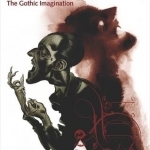
Terror and Wonder: The Gothic Imagination
Book
The Gothic imagination, that dark predilection for horrors and terrors, spectres and sprites,...
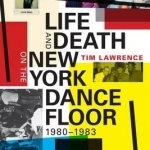
Life and Death on the New York Dance Floor, 1980-1983
Book
As the 1970s gave way to the 80s, New York's party scene entered a ferociously inventive period...
David McK (3721 KP) rated Hornblower: The Even Chance (1998) in Movies
Aug 15, 2021 (Updated Jun 29, 2025)
First of the TV movie adaptations of CS Forester's famous nautical hero Horatio Hornblower, taking it's main inspiration and plot from the earliest (set, if not released) of those books when Hornblower had just joined the navy.
Ant, therein, I found, lies my biggest problem with the film: Ioan Gruffudd (back before Hollywood came calling - he was Mr Fantastic from the original Fantastic Four movies, remember) is simply too old for the part!
That's not to say that he doesn't give it his all, or even manage to fully inhabit the role: just that, in this one at least, I couldn't get over the fact that Midshipmen were only supposed to be in their very early teens (11, 12, thereabouts), and yet here we have an actor in his mid 20s (at the time of recording) playing a 17 year old - and even 17, to me, seems too old to be a Midshipman during the period portrayed.
Ant, therein, I found, lies my biggest problem with the film: Ioan Gruffudd (back before Hollywood came calling - he was Mr Fantastic from the original Fantastic Four movies, remember) is simply too old for the part!
That's not to say that he doesn't give it his all, or even manage to fully inhabit the role: just that, in this one at least, I couldn't get over the fact that Midshipmen were only supposed to be in their very early teens (11, 12, thereabouts), and yet here we have an actor in his mid 20s (at the time of recording) playing a 17 year old - and even 17, to me, seems too old to be a Midshipman during the period portrayed.
James Morrison (7 KP) rated The Isle (2018) in Movies
May 12, 2019
Should have left it on the isle
So i went to see this one at everyman cinema stratford upon avon where they also had a Q+A session with the two directors, alex and the woman who plays the part or the murdered victim was all their.
Now for me and the wife we feel that the film dragged on to long to the point I was falling asleep as it became that boring, i would say that if you liked the VVITCH then you may like this one but if not then its one to avoid as its the same kinda film.
As for fizz and ginger themself well lets just say they had a question possed at them during the Q+A "why did the people leave the island? Was it bacause of the highland clearances, fammine or the weather conditions?" Trying to get themself out of it they said "it was a combination of every thing" well at the end of the Q+A with me and the wife being scottish we had to give them a history lesson, the highland clearances happened in the 1600s after the battle of culloden, now if you know scotland this is the top end of the country and their "island" is not far from glasgow the bottom end of Scotland, added to this the clue highland clearances the island is in the lowlands, and adding even further after the battle of culloden the english pushed north slaughtering anyone wearing a kilt and banded the bagpipes and bonny prince charlie escaped the the closed island before going to france which was the isle of sky where people still live they would have seen that this does not match up.
On top of this the people left the island in the late 1800s, the highland clearances was 1600 so they were 200 years out of date the reason we know this is because the wifes great grand mother lived on the island.
For a film was written over a 2 year period and made on a small budget and film with in 4 weeks with trained actors this film would have been better being dumped in the loch never to be seen by the public but i guess we all need to start some where even if we open our gobs to make ourself look intelligent rather than be honest with the public and say we really dont know why they left
Now for me and the wife we feel that the film dragged on to long to the point I was falling asleep as it became that boring, i would say that if you liked the VVITCH then you may like this one but if not then its one to avoid as its the same kinda film.
As for fizz and ginger themself well lets just say they had a question possed at them during the Q+A "why did the people leave the island? Was it bacause of the highland clearances, fammine or the weather conditions?" Trying to get themself out of it they said "it was a combination of every thing" well at the end of the Q+A with me and the wife being scottish we had to give them a history lesson, the highland clearances happened in the 1600s after the battle of culloden, now if you know scotland this is the top end of the country and their "island" is not far from glasgow the bottom end of Scotland, added to this the clue highland clearances the island is in the lowlands, and adding even further after the battle of culloden the english pushed north slaughtering anyone wearing a kilt and banded the bagpipes and bonny prince charlie escaped the the closed island before going to france which was the isle of sky where people still live they would have seen that this does not match up.
On top of this the people left the island in the late 1800s, the highland clearances was 1600 so they were 200 years out of date the reason we know this is because the wifes great grand mother lived on the island.
For a film was written over a 2 year period and made on a small budget and film with in 4 weeks with trained actors this film would have been better being dumped in the loch never to be seen by the public but i guess we all need to start some where even if we open our gobs to make ourself look intelligent rather than be honest with the public and say we really dont know why they left
Hazel (1853 KP) rated Videodrome: Days of O'Blivion in Books
Dec 17, 2018
<i>I received this book from the author in exchange for an honest review</i>
Written as a prequel to David Cronenberg’s horror film, Lee McGeorge explores the potential scenario that led up to the surrealist events in <i>Videodrome</i>. This short story is more science fiction than horror in nature as it only builds up the background and setting to the point in which the film begins.
<i>Days of O’Blivion</i>, as well as the original film, is set during the cold war between the US and USSR. It is a period of time threatened with atomic weapons of mass destruction, and the competition to create the most superior technology. In this particular scenario, two men: Professor Brian Olivier and his friend Barry have been experimenting with special television technology resulting in interesting outcomes. Their product, which they name <i>Veraceo</i> –a compound of Veracity and Video –, has the ability to make everyone believe what they are seeing on screen to be true. This could be a big boon to advertising establishments, however cause dire consequences if found in the wrong hands, i.e. communists.
Readers, including those unfamiliar with the film, should be able to ascertain several problems this technological advancement could pose, making it all the more foreboding when an unknown but powerful company pays out thousands of dollars to become partners with Brian and Barry. What makes it all the more ominous is Brian’s hesitancy in accepting the offer in contrast with Barry’s excitement. As the technology is adapted further it becomes clear that they are dealing with very dangerous concepts and people – hallucinations being only the smallest of side affects.
Although Lee McGeorge is using an already existing story, he makes this prequel his own by exploring the hows and whys <i>Veraceo</i> came to be developed. His narrative is accurate in terms of the way it builds up to coincide with the film script without damaging or giving new meaning to Cronenberg’s original storyline.
Although not horror as in scary, <i>Days of O’Blivion</i> contains many horrific scenes. Most of these are pornographic in nature and rather disturbing, particularly more so as the story progresses – something that lessened the general enjoyment of the book. The overall nature of the book (and film, probably) may appeal more towards a male market, particularly those with a less delicate temperament.
As with his previous books, which also incorporate pre-existing ideas, Lee McGeorge writes well in a way that engages the reader and even interests those without prior knowledge of the subject. There is also additional digital content alongside this book. Those lucky enough to own a paper back copy will be able to access these using an NFC enabled device.
Written as a prequel to David Cronenberg’s horror film, Lee McGeorge explores the potential scenario that led up to the surrealist events in <i>Videodrome</i>. This short story is more science fiction than horror in nature as it only builds up the background and setting to the point in which the film begins.
<i>Days of O’Blivion</i>, as well as the original film, is set during the cold war between the US and USSR. It is a period of time threatened with atomic weapons of mass destruction, and the competition to create the most superior technology. In this particular scenario, two men: Professor Brian Olivier and his friend Barry have been experimenting with special television technology resulting in interesting outcomes. Their product, which they name <i>Veraceo</i> –a compound of Veracity and Video –, has the ability to make everyone believe what they are seeing on screen to be true. This could be a big boon to advertising establishments, however cause dire consequences if found in the wrong hands, i.e. communists.
Readers, including those unfamiliar with the film, should be able to ascertain several problems this technological advancement could pose, making it all the more foreboding when an unknown but powerful company pays out thousands of dollars to become partners with Brian and Barry. What makes it all the more ominous is Brian’s hesitancy in accepting the offer in contrast with Barry’s excitement. As the technology is adapted further it becomes clear that they are dealing with very dangerous concepts and people – hallucinations being only the smallest of side affects.
Although Lee McGeorge is using an already existing story, he makes this prequel his own by exploring the hows and whys <i>Veraceo</i> came to be developed. His narrative is accurate in terms of the way it builds up to coincide with the film script without damaging or giving new meaning to Cronenberg’s original storyline.
Although not horror as in scary, <i>Days of O’Blivion</i> contains many horrific scenes. Most of these are pornographic in nature and rather disturbing, particularly more so as the story progresses – something that lessened the general enjoyment of the book. The overall nature of the book (and film, probably) may appeal more towards a male market, particularly those with a less delicate temperament.
As with his previous books, which also incorporate pre-existing ideas, Lee McGeorge writes well in a way that engages the reader and even interests those without prior knowledge of the subject. There is also additional digital content alongside this book. Those lucky enough to own a paper back copy will be able to access these using an NFC enabled device.
